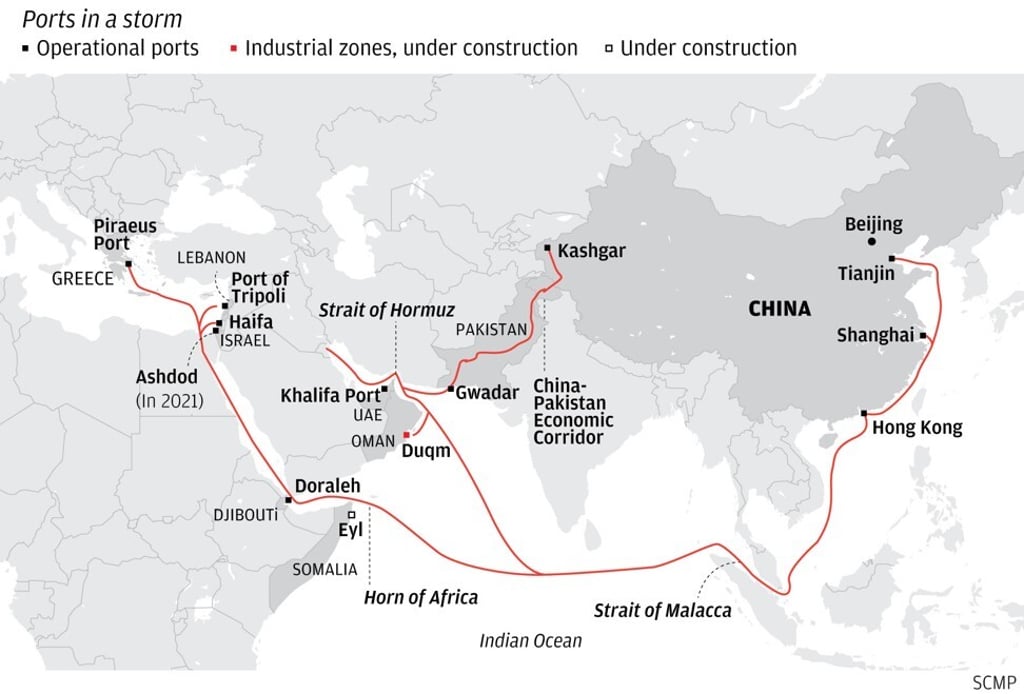Advertisement
China: America’s hidden target in Trump’s ‘historic’ Israel-UAE deal?
- The alliance has been positioned as America buttressing its two allies against the ambitions of Iran and Turkey, but sceptics spy a quid pro quo
- US wants Arab-Israeli support in countering Beijing’s influence over supply routes seen as a ‘life and death’ matter for China’s economy, analysts say
Reading Time:11 minutes
Why you can trust SCMP
0

The United States is actively seeking to leverage its pivotal role in establishing diplomatic relations between Israel and the United Arab Emirates (UAE) to intensify its resistance to China’s Belt and Road interests in the Middle East, Horn of Africa and the eastern Mediterranean.
The framework of the trilateral agreement, announced on August 13 by the UAE’s Minister of State for Foreign Affairs Anwar Gargash and lauded as historic by the Trump administration that brokered it, contained plans for a maritime security alliance, analysts and commentators told This Week in Asia.
Once implemented, the trilateral alliance will establish a “strategic triangle” which, primarily, aims to counter Iranian threats to shipping passing through the region’s two maritime choke points: the Strait of Hormuz, at the entrance to the hydrocarbon-rich Gulf, and the Bab El-Mandeb Strait between Yemen and the Horn of Africa, on the way from the Indian Ocean to the Suez Canal.
Alongside the Strait of Malacca – a strip of water between Peninsular Malaysia and the Indonesian island of Sumatra – they comprise the three strategic maritime passages most important to China’s geopolitical interests. Beijing has described unhindered access to the three waterways as a “matter of life and death” for its economy.
The US-led trilateral maritime alliance further aims to contest Turkey’s assertion of a vastly expanded claim to an exclusive economic zone covering most of the eastern Mediterranean Sea, following its agreement last November with the Tripoli-based United Nations-recognised government of civil war-torn Libya.
Advertisement
Select Voice
Choose your listening speed
Get through articles 2-3x faster
1.1x
220 WPM
Slow
Normal
Fast
1.1x
